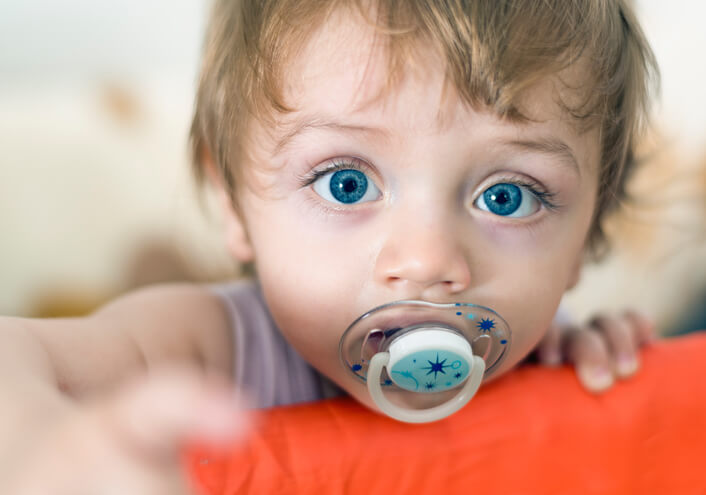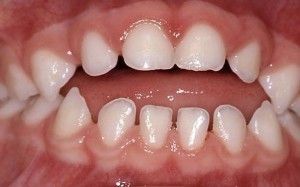
Sucking in newborns is a reflexive behavior. Not only does this aide in providing the baby nourishment, but it is also soothing and calming. Pacifier use in newborns is not necessarily problematic. ‘
It soothes otherwise fussy little ones and gives good “practice time” for nutritive sucking, especially for those infants that are struggling with this skill.
However, at 6-12 months of age the cons begin to out-weigh the benefits. Ideally, by the age of one, your child no longer uses his or her pacifier.
Problems Associated with Prolonged Pacifier Use:

- Dentition problems or “pacifier teeth” including open bite, cross bite, and overbite. (Pacifiers with attached stuffed animals are especially problematic to dentition because of the excess weight.)
- Impact on detention can result in your child having difficulties producing certain speech sounds
- Infantile swallow pattern or “tongue thrust” becomes an ingrained habit.
- Increased risk of chronic ear infections.
- Key language development occurs at 12-18 months of age. Pacifier use at this time can interrupt this crucial stage of development. In other words, the pacifier acts as an effective plug, preventing your child’s communication!

● Begin limiting time the pacifier is available (nap and bedtime)
● Offer alternate comfort items (stuffed animal, blanket, etc.)
● Make the pacifier unappealing:
– Add a coating of lemon juice
– Cut a hole in the pacifier or snip off the tip to prevent proper suction.
Resource: https://www.sensorysolutions.org/home/blog/effects-extended-pacifier-use-infants

Blog by:
Hanna S. – M.A., CCC-SLP
